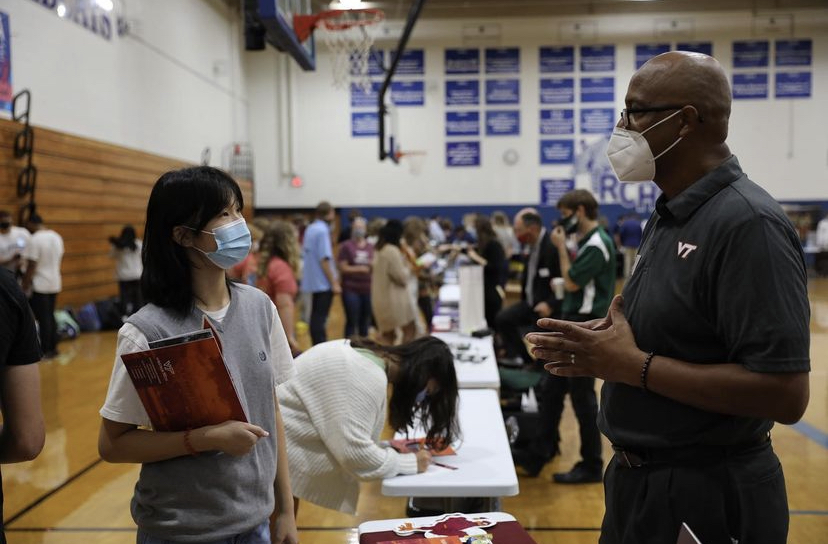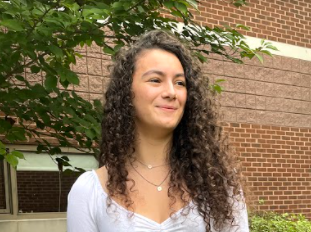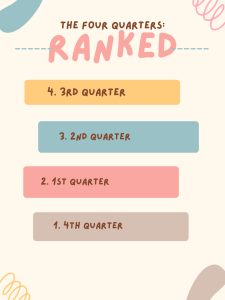The College Search for Seniors
Jennifer Fu at the RCHS College Fair.
September 30, 2021
Senior year is an important time in most students’ lives. As the end of their high school era comes near, relief and excitement can be mixed with anxiety or fear about what comes next. According to statistics from the RCHS Guidance Office, in the class of 2021, 42% of students chose to attend a 4-year college next, while another 15% chose a 2-year college. Members of this year’s senior class are already getting to experience the ups and downs of the process of first searching for, and then applying to, colleges and universities.
Karena Richmond and Jennifer Fu are both seniors at RCHS. They have had to start considering which factors are most important in determining where they want to spend the next chapter of their life.
“One of my main priorities when considering colleges is the location. So far, I’ve been trying to get out of Virginia (as I’m sure many are), especially looking for bigger cities with more opportunities and diversity,” said Fu. “In college, I’m mainly looking forward to a fresh start and something new. I was born and raised in Lexington and have been here my whole life, and though I do appreciate this calmer lifestyle, I also feel restricted by it. I’m ready to meet different people, experience new things, and in short, move on.”
“[I have thought about] size first. I thrive in small classrooms, so a really big school is not really an option. I also want something on the coast, and pretty. Of course, a really good education is the most important thing. I’m looking forward to leaving Lexington and exploring the big wide world, and getting to know all its people. I’m nervous, but I know I can do it,” said Richmond.
Despite their excitement, Fu and Richmond have both expressed how overwhelming the college search and application process can be at times.
“This process has been, and still is, incredibly stressful. Even though adults try to tell us that the college we choose isn’t that big of a deal, it still feels like a huge life decision. At any rate, it probably is the biggest life decision we’ve had to make up until this point,” said Fu. “In addition, there are so many factors to consider – financial capabilities, future careers, parental expectations – that put a tremendous amount of pressure on students.”
Adding this process on top of the typical academic load and extracurriculars that seniors already balance can be difficult. There is not only pressure, but an expectation to be involved in these sorts of activities in order to get into some colleges in the first place.
“Getting home late from games and trying to do homework is hard, as my motivation zaps away pretty quickly. I try my best, but sometimes it’s a little too much to do two hours of homework after a hard game,” said Richmond.
To assist seniors in this process, there are a multitude of resources available within RCHS, one of which is the RCHS Guidance Office. Janet Buchheit, a counselor at RCHS, spoke on the process.
“Counselors meet with seniors through their English classes in September [to] share about the senior forms as well as talk about options for after high school. Then each counselor meets with each senior to go through transcripts for graduation and talk about plans for after high school,” said Buchheit. “It is in those conversations where we can find out what questions and needs there are for each senior.”
Within the RCHS Guidance Office, one of the key resources for students is Lisa van Ravensway. Van Ravensway is the person who seniors should go to about anything college related.
“Mrs. van Ravenswaay works carefully with seniors to support them with questions about their forms to hand in. She also helps with guiding seniors to find scholarships, set up a Parchment account, and helps to answer questions about colleges,” said Buchheit.
Another resource available to students is David Simms, a teacher at RCHS who assists students throughout the selection and application process.
“Part of what I do with my clients privately, and now here, is help them find what works best for them. We explore their wants/needs/etc. through the colleges they are interested in and follow through with the “hows,” “whens,” “whats” – but where it gets tough is in the “whys”,” said Simms. “Too many people make decisions based solely on what they know from other students and alumni without digging into the schools themselves. I hope to help students find their passion about a particular school or major and dive deeper.”
Even with all these resources, students can face individual struggles with the process and decisions that they have to make for themselves.
“Some students are unsure about what they want to do after high school. They benefit from completing some career inventories to see where their interests guide them,” said Buchheit, “Some students find it difficult to make a decision about which school to attend. They are considering things like cost, location, size, program offerings to make decisions. For some students, completing the FAFSA is challenging. It really depends on the student and what is going on for them.”
“The toughest part is that personalization process,” said Simms. “Too many believe that they’re supposed to impress only with writing skills. Colleges want to see a 3 dimensional person on the page. Finding that “it” factor about yourself is hard – both to open up to and pour it out onto the page.”
Yes, the college search can be simultaneously difficult and exciting. However, there are a multitude of resources to assist students along the way. Buchheit offers seniors the following advice: “Take it one step at a time and ask questions. You never know when a conversation can spark a brilliant next step.”








